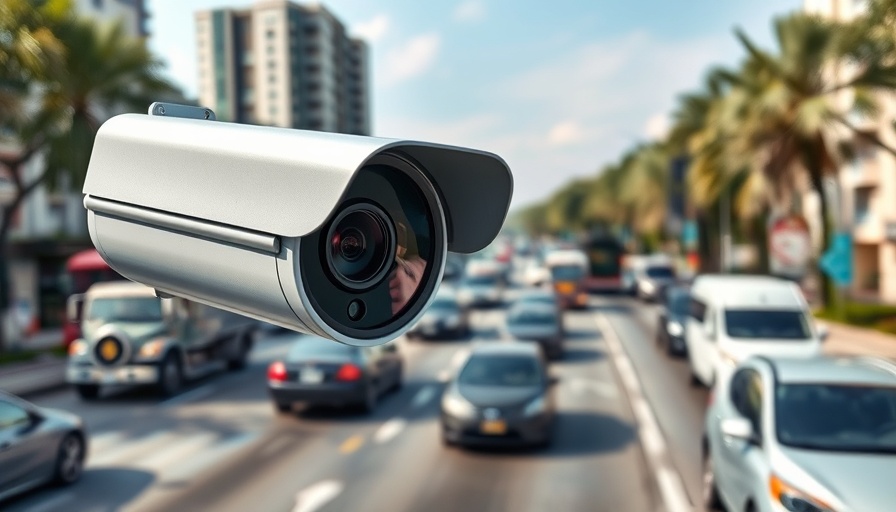
Understanding the Controversy Behind Speed Camera Programs
Speed camera programs have stirred heated debates around their true intentions. Are they genuinely aimed at increasing road safety, or are they tools for municipalities looking to line their coffers? The resignation of Louisiana constable Ron Tetzel shines a light on this contentious issue. During his brief tenure, he issued over 4,000 speeding tickets in just two weeks from a school zone, raising over $600,000, resulting in his own admission that the initiative was essentially a 'money grab.'
The Legal Framework: What Went Wrong?
In Tetzel's case, it was revealed that a proper cooperative endeavor agreement with the school board was not established, making the issuance of tickets illegal. Legal requirements for such programs exist to protect citizens from potential overreach by law enforcement agencies. Louisiana state senator Caleb Kleinpeter emphasized this point when he advised residents not to pay the tickets, highlighting a significant gap in accountability. The absence of a legal framework not only undermines the program's credibility but also the trust between law enforcement and communities.
Public Sentiment and Community Response
The swift backlash from the community and local officials illustrates a broader misconception that speed cameras are merely about raising revenue rather than promoting safety. Senator Kleinpeter's comments reflect a growing dissatisfaction among constituents who feel exploited by policies that seem more financial than protective. This distrust can damage the relationship between law enforcement and the community, fostering an atmosphere of suspicion.
Future Predictions: The Path Ahead for Speed Enforcement
As cities explore the potential of technology to manage traffic and improve safety, it becomes crucial to balance enforcement with ethical considerations. We can anticipate future shifts where legislators will push for clearer regulations governing automated enforcement systems. Additionally, proper training and guidelines for law enforcement officers will be paramount to instill public confidence in these programs as beneficial rather than predatory.
Challenges and Opportunities in Speed Enforcement
If municipalities are to implement speed enforcement mechanisms, they must address the challenges that come with them, particularly regarding transparency and accountability. Public engagement should be a priority, with forums for citizens to express their concerns and suggestions. Opportunities exist for integrating community feedback into policing strategies, turning potential adversaries into partners in traffic safety efforts.
Community Lessons: How This Affects Local Citizens
The implications of Tetzel's resignation extend far beyond the realm of traffic laws. For many residents, this incident reaffirms concerns about the importance of citizens' rights and the need for clear legal frameworks that prioritize safety. Understanding the mechanics of local law enforcement helps empower communities to hold their officials accountable, advocating for fair practices in governance.
Conclusion: Navigating a Fair Future
The controversy over speed camera programs is not just a local issue but reflects a national conversation about traffic enforcement and accountability. As municipalities refine their approaches, they should strive to create systems that benefit both public safety and community trust. This will require cooperation, transparency, and a commitment to serving the public interest rather than merely generating revenue.
As individuals navigating these systems, it’s imperative to stay informed and engage in discussions about local legislation, ensuring our roads remain safe without compromising our rights.
 Add Row
Add Row  Add
Add 




Write A Comment